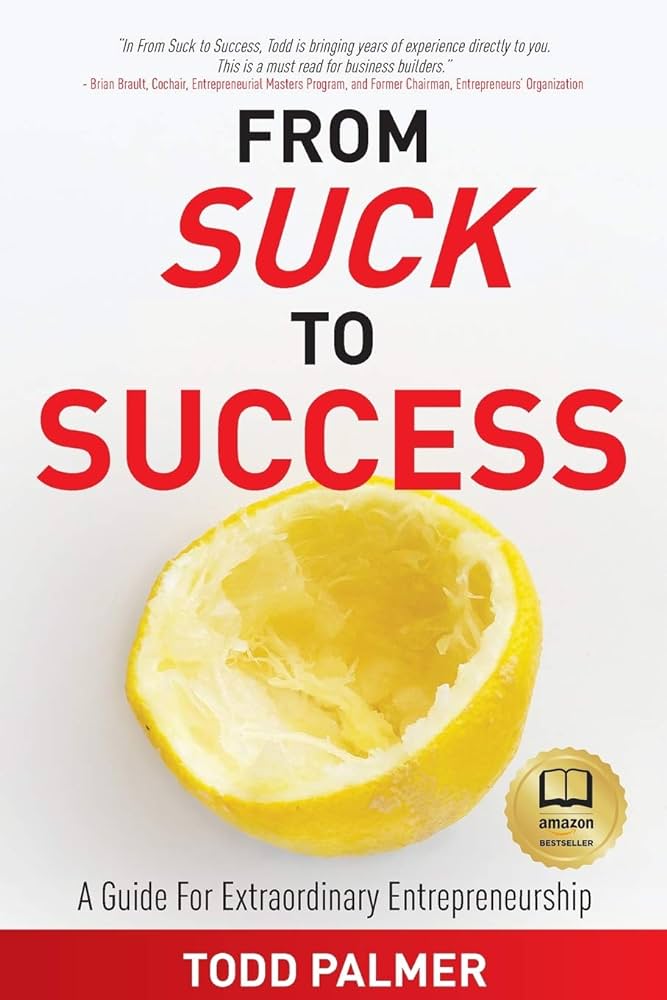Recently, thanks to EO Connecticut, I had the blessing of hearing Geno Auriemma speak — the legendary UConn women’s basketball coach with 12 NCAA championships, the most all-time wins, and the highest winning percentage in college basketball history.
But what struck me most wasn’t his record. It was his mindset.
Geno didn’t talk about trophies — he talked about people. About leadership. About the cost of greatness.
Here are the lessons that resonated with me — and how they apply to business and life.
1. “Come play for me, not the school.”
When Geno recruits talent, he doesn’t sell the logo — he sells himself as a leader.
He tells players, “I believe in you. Come play for us.”
He’s not asking them to play for him — he’s inviting them to believe with him.
In business: People don’t join companies — they join leaders.
Your brand, your product, your perks — none of that matters if your people don’t believe in you.
When was the last time you looked a top performer in the eye and said, “I believe in you”?
2. Hire for hunger, not hype.
Geno looks for “people who want to prove a point.”
The ones driven to make an impact — not just look good doing it.
In business: Talent is table stakes. Drive is the differentiator.
You can teach skills — but you can’t manufacture hunger.
Hire the ones who want to change the game, not just play it.
3. “Know who you are and what you stand for.”
Geno refuses to sacrifice his core values to recruit a star player.
He knows that culture beats talent — every time.
In business: Don’t bend your values to fit the wrong client, partner, or employee.
If someone doesn’t align with your mission, let them play for another team.
4. “Identify the grapes that make your fine wine.”
Geno said, “For a grape to be part of a fine wine, it has to get stomped on. To reach the top, you’ll endure some pain — because there’s always a cost to greatness.”
In business: Growth requires friction.
Pressure is the price of excellence.
When your team pushes back, when you’re uncomfortable, when you’re “getting stomped,” you’re being transformed into something finer.
Comfort never created champions.
Growth only happens in the zone of discomfort.
5. When you’re losing, change the way you play.
“When you’re losing,” Geno said, “you can’t keep doing things the same way. The leader must change how we work, strategize, and practice.”
In business: Losing exposes the gaps between effort and execution — and leaders can’t fix what they won’t face.
If results aren’t improving, your systems, mindset, or habits need to.
You can’t expect new outcomes from old behaviors.
6. Communication is connection.
“You have to explain things to people who have a hard time understanding — and understand people who have a hard time explaining.”
In business: That’s leadership empathy in one sentence.
Some people need data. Others need reassurance.
Great leaders adapt their message to meet each person where they are.
7. From Driven to Wise.
Geno said, “When I was younger, I tried to prove a point. Now I’m enjoying life.”
Personally, I could relate to that.
Early in my career, I was driven — by fear, ego, and the need to prove myself.
Now I’m learning that wisdom isn’t about control — it’s about trust.
In business: There’s a moment in every leader’s life when the fuel has to change.
You can’t run on fear and expectation forever.
At some point, peace has to replace proof.
Like Geno, many founders eventually realize that winning isn’t the goal — it’s the outcome of alignment, trust, and presence.
8. “What do you need from me?”
Geno told his players, “Ask your coach what he needs from you.”
He wasn’t talking about blind obedience — he was talking about partnership.
His players dreamed of playing in the WNBA. But before they could get what they wanted, they had to give their coach what he needed — effort, humility, and a relentless commitment to growth.
They had to be coachable.
That meant letting go of ego, pride, and excuses.
When they allowed themselves to be coached, their skills improved and many of them made the WNBA. They had to give first, in order to gain.
In business: The same truth applies.
When your team asks you, “What do you need from me as the leader?” — and then actually delivers — everything changes.
Because success is always a two-way street.
As Geno said, “We can all have a great time if we all put our $10 on the bar.”
That’s what real culture looks like — everyone investing in each other, everyone giving before they get.
That’s not just teamwork.
That’s leadership.
9. Head vs. Gut
Geno admitted he lost three Final Fours because he ignored his brain.
He said, “My brain was right, but my gut was wrong — and I knew it in the moment. And I went with my guy any way…and we lost.”
In business: Preparation and data build the plan; intuition adds speed.
When your gut conflicts with your brain under pressure, default to the plan you prepared — but don’t silence your intuition.
Reflect afterward to see what your gut was trying to tell you.
Leadership wisdom isn’t about always knowing the answer.
It’s about knowing which voice to trust when it matters most.
Final Thought
Geno reminded me that leadership isn’t about being perfect.
It’s about being human — believing in people, standing for something, and knowing when to adapt.
So here’s your challenge this week:
👉 Who on your team needs to hear you say, “I believe in you”?
👉 And where in your business do you need to stop proving a point — and start leading with wisdom?




